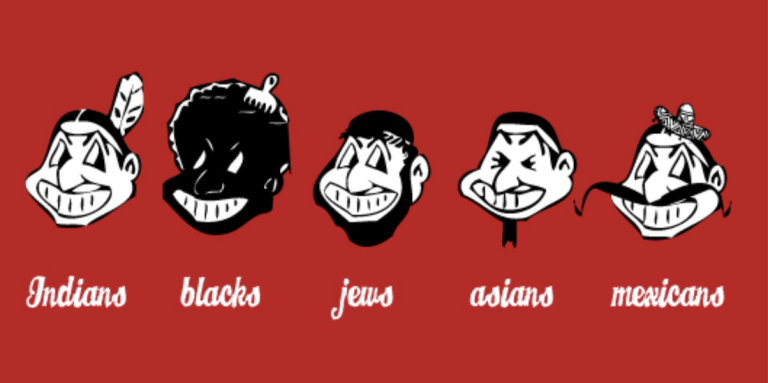
President’s demands ignite debate on race, tradition, and the role of sports in U.S. civic life

New York, N.Y. — Donald Trump has renewed his campaign against so-called ‘wokeism’ in professional sports, urging the Washington Commanders and the Cleveland Guardians to abandon names adopted as part of broad social reckoning in U.S. sports.
In a series of charged Truth Social posts, Trump insisted “times are different now,” calling on franchise owners to “get it done”—heatedly demanding a return to the former names: the Washington Redskins and the Cleveland Indians.
Trump’s Direct Social Media Call to Action
Donald Trump made his stance explicit, writing on Truth Social: “The Washington ‘Whatever’s’ should IMMEDIATELY change their name back to the Washington Redskins Football Team. There is a big clamoring for this.”

He extended his argument to Cleveland, asserting, “Likewise, the Cleveland Indians, one of the six original baseball teams, with a storied past. Our great Indian people, in massive numbers, want this to happen. Their heritage and prestige are systematically being taken away from them. Times are different now than they were three or four years ago. We are a Country of passion and common sense. OWNERS, GET IT DONE!”
The Truth Social post follows Trump’s pattern of positioning himself as an opponent of so-called political correctness and as a restorer of tradition, but also highlights his contention—contested by many Native American advocacy groups—that Indigenous Americans broadly support the restoration of former team names.
His comments about blocking new stadium deals for the Commanders unless there is a return to the old name further escalated the stakes, potentially using federal leverage to influence private sports branding.
The Historical Arc of Name Changes

The decision by the Washington franchise to drop the “Redskins” name in July 2020 came after decades of pushback from Indigenous activists, scholars, and civil rights groups, who have long argued that names and mascots referencing Indigenous cultures perpetuate harmful stereotypes.
Facing pressure from advertisers like Nike and FedEx and a broader cultural shift after the protests of 2020, the team was temporarily called the Washington Football Team before becoming the Commanders in 2022.
Similarly, the Cleveland Guardians—formerly the Indians—adopted their present moniker in late 2021 after over a century with the old name. The franchise cited a responsibility to “unite as one family, one community” and to “build the next era,” acknowledging the divisive history attached to the prior name.
The name “Indians” was retired after several years of protests, a movement energized by a national reckoning with racism after the murder of George Floyd in May 2020.

Indigenous Voices and Societal Divides
Despite Trump’s assertion that “our great Indian people” want the name changes reversed, polls and public statements by Indigenous organizations tell a more nuanced story.
Advocacy groups such as IllumiNative and the National Congress of American Indians strongly supported the retirements of names they see as racial slurs embedded in histories of violence and marginalization.
Surveys around the time of the Commanders’ name change showed a significant shift in public opinion.
Earlier polls suggested most Americans supported keeping the names, support waned after 2020, especially among younger and more racially diverse respondents.
Nevertheless, there remains outspoken opposition to the changes among some fans and within certain Native advocacy groups like the Native American Guardian’s Association, who contest that old names honor tradition rather than belittle it.
The debate is, in effect, a proxy for much larger cultural and political battles in the U.S., pitting tradition and nostalgia against racial reckoning and social progress.
Franchises’ Responses and Long-Term Consequences
In response to Trump’s latest demands, both franchises reiterated their long-term branding directions. Chris Antonetti, president of the Cleveland Guardians, commented the organization prefers to focus on the future rather than revisit past debates:

“It’s a decision we made, and we’ve had the chance to build the brand as the Guardians over the past four years. We’re looking forward to what lies ahead.”
The Commanders have not issued a new statement on Trump’s remarks; recent announcements signal no intent to restore the previous name.
Stadium politics and urban redevelopment further complicate the picture. The Commanders’ prospective return to Washington, D.C. depends on complex municipal and federal cooperation for a new venue at the old RFK Stadium site.
Trump’s threats to block a stadium deal unless the team restores “Redskins” are noteworthy, but experts point out that D.C. home-rule laws and local governance are likely to limit any direct intervention from the White House or federal government.
The Culture Clash Over Identity vs. Nostalgia

The ongoing controversy over team names is about more than sports marketing: It reflects a larger cultural debate about U.S. identity—about whose history is honored, whose voices are prioritized, and whether “woke” has become a pejorative for progress or a call for respect and empathy.
For some, these names and symbols represent valued tradition and continuity. For others, they are enduring reminders of injustice and exclusion.
Ultimately, as both owners and social advocates have learned, shifting or maintaining team names resonates far beyond the box score.
The debate is unlikely to end with a social media post, even from a former president, and the battle lines continue to reflect the nation’s deepest rifts over history, memory, and the contest over what stories Americans choose to celebrate.
75-Word Audio Summary
Donald Trump reignited debate over sports team names, demanding on July 20, 2025, that the Washington Commanders and Cleveland Guardians revert to the Redskins and Indians monikers. Trump’s social media posts argue that Indigenous Americans support these restorations. Both franchises, however, remain committed to present names, adopted after years of advocacy and changing attitudes about race and inclusivity in sports. The controversy underscores broader divides over tradition, progress, and the politics of national identity.